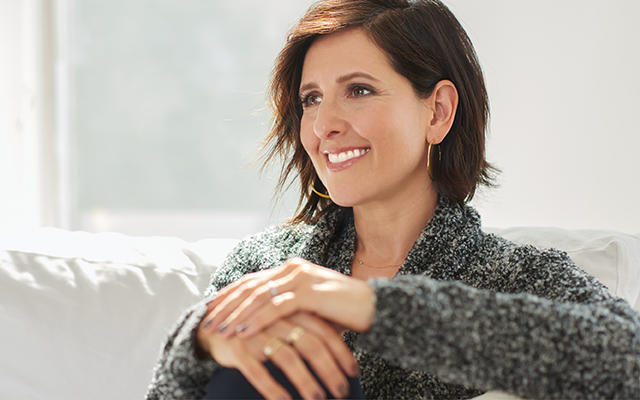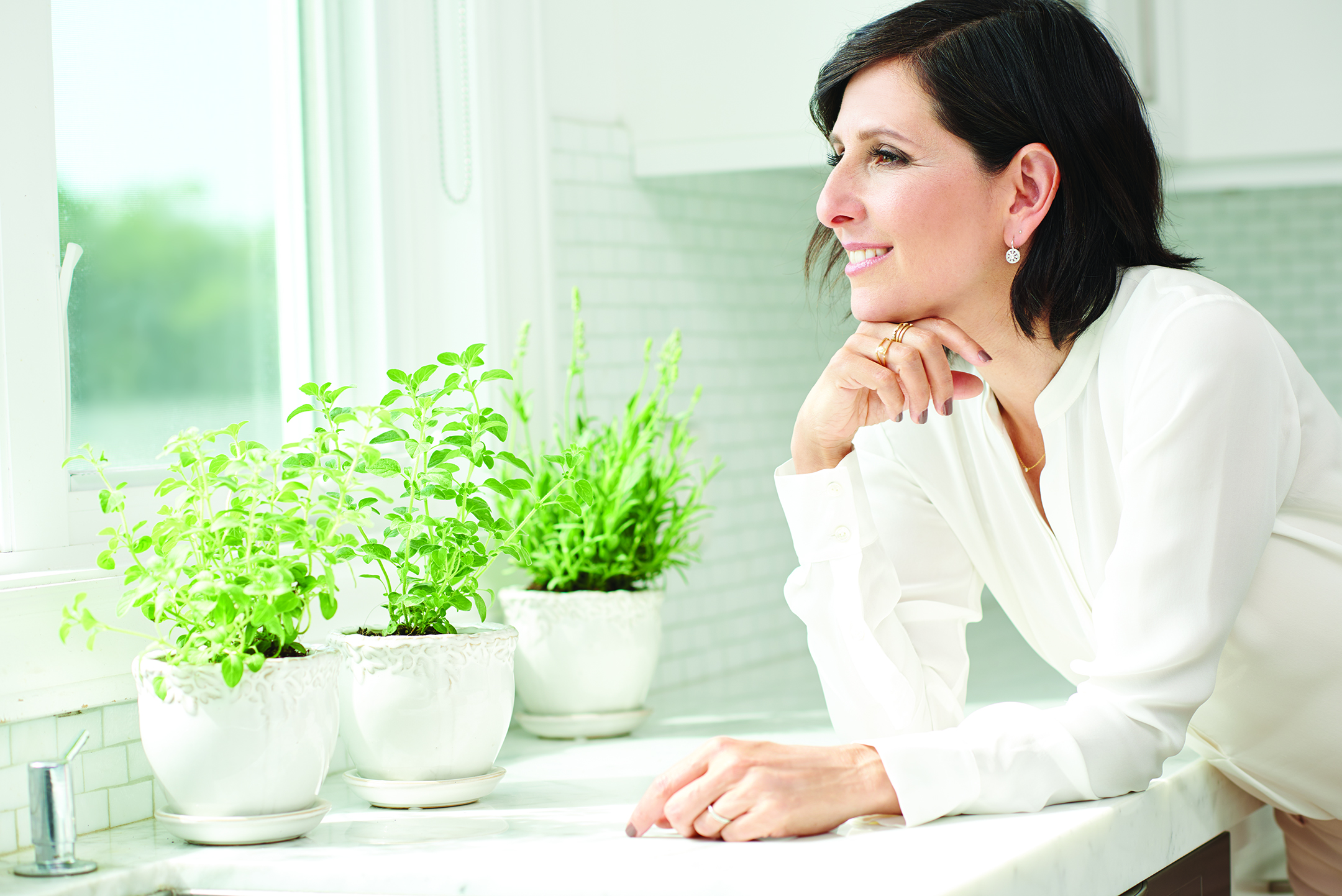After more than two decades of practicing herbalism and midwifery, 39-year-old Aviva Romm decided to follow a dream she’d first expressed as a teenager: Go to medical school.
By all accounts, she took to mainstream medicine at Yale pretty well. Four years later, the American College of Physicians (ACP) gave her an award for “outstanding academic achievement and community service.”
Romm, now 50, says her extensive experience in fields that may seem at odds are actually “a brilliant combination.” Midwifery taught her the value of placing the patient at the center of care, while training at a prestigious medical institution gave her a broad body of knowledge that expanded the services she now offers patients at her Thrive Health Center in New York City.
She tapped into both worlds to write her forthcoming book, The Adrenal Thyroid Revolution, which addresses myriad seemingly disconnected symptoms — fatigue, insulin resistance, food cravings, sleep problems, hormone imbalances — affecting her female patients.
Helping and empowering patients, along with focusing on how the body’s systems are connected, are at the heart of Romm’s holistic approach to healthcare. This, combined with wisdom gained from midwifery and traditional medicine, makes her a unique force for healing.
Experience Life | You began your career as a midwife and herbalist. Why did you choose that path?
Aviva Romm | I went to college at 15 planning to be a medical doctor. During the first semester, I realized we have more control over our health than we’re led to believe, and I became interested in how we can create or take back our health with food, lifestyle, and mindset changes. I also learned about herbal medicine and was given a copy of the book Spiritual Midwifery by Ina May Gaskin and the paper Perinatal Roots of Wars, Totalitarianism, and Revolutions by psychiatrist Stanislav Grof, MD, PhD.
These writings appealed to me because they focused on how birth profoundly affects the rest of our lives — and what they revealed truly was the tip of the iceberg. They were much more about the psychological and spiritual underpinnings of how we start our lives and how that leaves impressions on our nervous systems. What these authors didn’t yet realize at the time was the incredible impact that our time in utero can have on things like our stress set points, microbiome, and these other interconnected facets that physically shape who we become and how we live our lives.
EL | What sparked your decision to go to medical school after all?
AR | At the time, healthcare statistics were showing that people — especially women — were paying hundreds of millions of dollars out of pocket to go to nonmedical, integrative, or alternative healthcare professionals. They were dissatisfied with the treatment they were getting within the traditional medical establishment, but not everything that was happening outside of the medical establishment was safe and reliable. My decision was really about providing a bridge between both models.
EL | How has your -experience as a midwife influenced your practice as a doctor — and vice versa?
AR | Midwifery taught me to place women in the driver’s seat of their care and to make them the CEO of their health. Everyone else’s role is to provide support that nourishes the woman.
Treating patients this way honors them, their intrinsic knowledge of their bodies, and their self-healing capacity, which the pharmaceutical model of care often suppresses or overrides.
Being a doctor has amplified my work. It’s made me stronger and clearer about how I want to practice. I have great respect for the medical model and what it brings, but in most ways it exceeds its wheelhouse. I think it’s better suited to provide emergency and acute urgent care rather than day-to-day healthcare.
EL | Your forthcoming book describes how survival overdrive syndrome affects human health. What is SOS, and why did you write about it?
AR | I coined this term to explain to my patients what’s going on in their bodies. It’s not an official medical diagnosis; it’s a functional syndrome. Remember, chronic fatigue syndrome, fibromyalgia, and irritable bowel syndrome weren’t recognized by much of the medical establishment 15 years ago. We’re in a changing culture and time.
Women were coming in to my practice every day with what looked like disparate symptoms: brain fog, fatigue, difficulty losing weight, insulin resistance, memory problems, sleep issues, and food cravings. But our systems are connected, and these symptoms don’t happen for no reason.
So I dug into the field of psychoneuroimmunology, which looks at how stress affects health. It establishes the fundamental interconnectedness of the stress-response system, which includes your nervous, immune, and hormonal systems; blood-sugar regulation; blood pressure; and cognitive function. This ties back to a primitive response network we have called the stress-response system, or the hypothalamic pituitary adrenal axis, which starts in your brain.
It’s not as though you’re literally thinking, I’m under stress! It could be that you haven’t eaten in too many hours, your blood sugar is low, and your brain says, I’m starving! Or it could be any number of other pressures we’re constantly under, from emotional stress to chronic exposure to environmental toxins.
Our survival mode is often stuck in overdrive because it keeps working too hard. Your body initially does what’s natural but then overcompensates. For instance, if your blood pressure is high too often because your body is trying to protect you from an emergency that’s never really going to happen, you can end up with chronically high blood pressure.
EL | What can we do to keep our stress-response system from getting stuck in overdrive?
AR | Two things are most important. One is hitting the pause button. We’re all busy and we don’t pay enough attention to how we’re feeling. We often go hours before realizing we’re hungry or thirsty. It’s important to make a practice out of paying attention to how you feel and honoring that by responding to your basic impulses. When you’re tired, sleep. When you’re hungry, eat.
Set an alarm on your phone for around 11 a.m., and between 2 and 4 p.m., to remind yourself to stop what you’re doing for at least five minutes to take a few deep breaths, hydrate, or walk around and stretch. Ideally, it’s good to take a few moments to check in with yourself when you wake up and again before bed to reset your stress-response system to a calmer state.
The second thing is getting enough sleep. Start noticing when you naturally feel tired and go to bed. Obviously, if you work night shifts you can’t get to bed at 10 o’clock, but do as much as possible to harmonize with the day’s natural rhythm, getting up close to when the sun rises, or going to bed at a time of night that gives you seven or eight hours of sleep.
EL | How do you take your own advice and apply these tips to your life?
AR | I really try to pay attention to my own body. Just like everyone else, I have my stresses, anxieties, and worries. As soon as I feel them coming on, I try to recalibrate.
I also surround myself with people I love as often as I can, and I really do push my own pause button — whether it’s by taking a lavender or Epsom-salts bath or getting out for a nice walk in nature.
When I’m feeling the most stressed, I have a dance party. I put on some really loud music and I sing and I dance!
Photography by Kwaku Alston




This Post Has 0 Comments